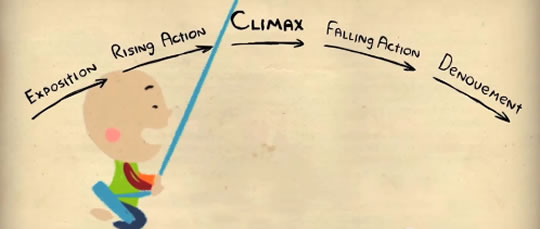I want to tell you a story about two neurochemicals…
Storytelling has remarkable effects on our brain and on our behaviour.
In a series of experiments in his lab, Paul Zak has shown that when watching a short, sad story about a father and son, two interesting neurochemicals are produced:
- Cortisol–which people feel as distress and encourages them to pay attention to the story.
- Oxytocin–which promotes connection and care and encourages people to feel empathy.
After experiencing the story, people who produced the most oxytocin were the most likely to give money to others they couldn’t see.
The molecule seemed to make them more generous (Zak et al., 2007).
This video explains the research and how it connects to a 150-year-old theory of storytelling:
Stories without key elements–including a climax and denouement–do not engage the brain in the same way. Indeed people ignore them.
Oxytocin doesn’t just make us more generous, though, it’s effects can be harnessed for less noble purposes.
According to Zak, oxytocin may also help explain some people’s susceptibility to advertising.
In one study, participants given a whiff of oxytocin gave more money to charities after seeing public service announcements than those not exposed to the chemical.
Zak said:
“Our results show why puppies and babies are in toilet paper commercials. This research suggests that advertisers use images that cause our brains to release oxytocin to build trust in a product or brand, and hence increase sales.”

